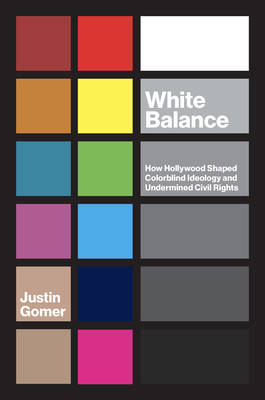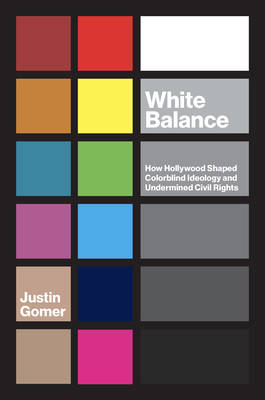
Door een staking bij bpost kan je online bestelling op dit moment iets langer onderweg zijn dan voorzien. Dringend iets nodig? Onze winkels ontvangen jou met open armen!
- Afhalen na 1 uur in een winkel met voorraad
- Gratis thuislevering in België vanaf € 30
- Ruim aanbod met 7 miljoen producten
Door een staking bij bpost kan je online bestelling op dit moment iets langer onderweg zijn dan voorzien. Dringend iets nodig? Onze winkels ontvangen jou met open armen!
- Afhalen na 1 uur in een winkel met voorraad
- Gratis thuislevering in België vanaf € 30
- Ruim aanbod met 7 miljoen producten
Zoeken
€ 167,95
+ 335 punten
Uitvoering
Omschrijving
The racial ideology of colorblindness has a long history. In 1963, Martin Luther King famously stated, "I have a dream that my four little children will one day live in a nation where they will not be judged by the color of their skin but by the content of their character." However, in the decades after the civil rights movement, the ideology of colorblindness co-opted the language of the civil rights era in order to reinvent white supremacy, fuel the rise of neoliberalism, and dismantle the civil rights movement's legal victories without offending political decorum. Yet, the spread of colorblindness could not merely happen through political speeches, newspapers, or books. The key, Justin Gomer contends, was film -- as race-conscious language was expelled from public discourse, Hollywood provided the visual medium necessary to dramatize an anti-civil rights agenda over the course of the 70s, 80s, and 90s.
In blockbusters like Dirty Harry, Rocky, and Dangerous Minds, filmmakers capitalized upon the volatile racial, social, and economic struggles in the decades after the civil rights movement, shoring up a powerful, bipartisan ideology that would be wielded against race-conscious policy, the memory of black freedom struggles, and core aspects of the liberal state itself.
In blockbusters like Dirty Harry, Rocky, and Dangerous Minds, filmmakers capitalized upon the volatile racial, social, and economic struggles in the decades after the civil rights movement, shoring up a powerful, bipartisan ideology that would be wielded against race-conscious policy, the memory of black freedom struggles, and core aspects of the liberal state itself.
Specificaties
Betrokkenen
- Auteur(s):
- Uitgeverij:
Inhoud
- Aantal bladzijden:
- 268
- Taal:
- Engels
- Reeks:
Eigenschappen
- Productcode (EAN):
- 9781469655796
- Verschijningsdatum:
- 29/06/2020
- Uitvoering:
- Hardcover
- Formaat:
- Genaaid
- Afmetingen:
- 156 mm x 234 mm
- Gewicht:
- 594 g

Alleen bij Standaard Boekhandel
+ 335 punten op je klantenkaart van Standaard Boekhandel
Beoordelingen
We publiceren alleen reviews die voldoen aan de voorwaarden voor reviews. Bekijk onze voorwaarden voor reviews.











